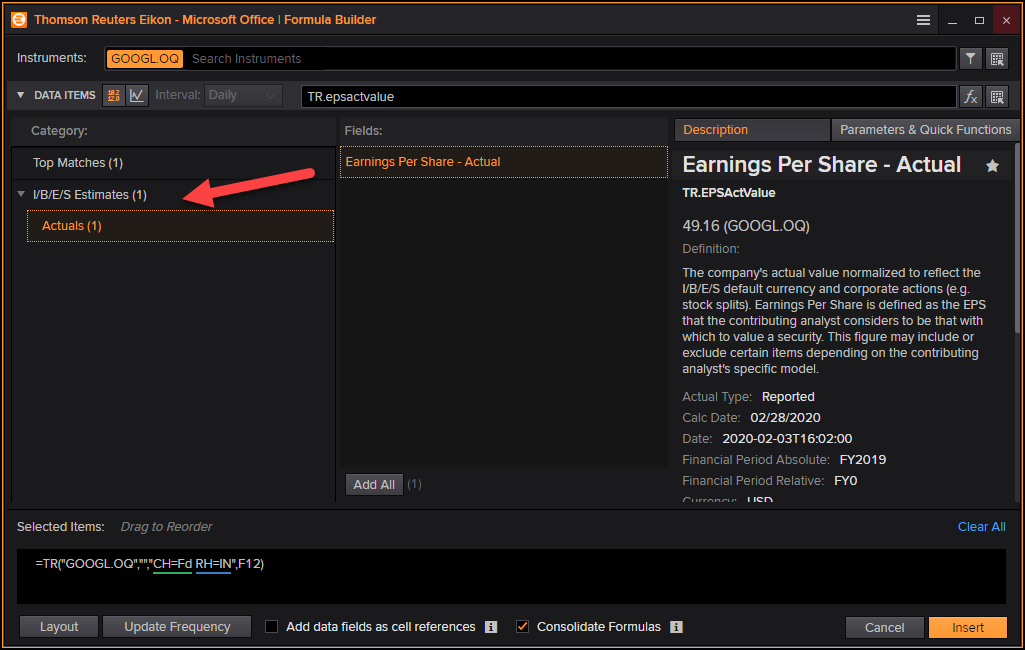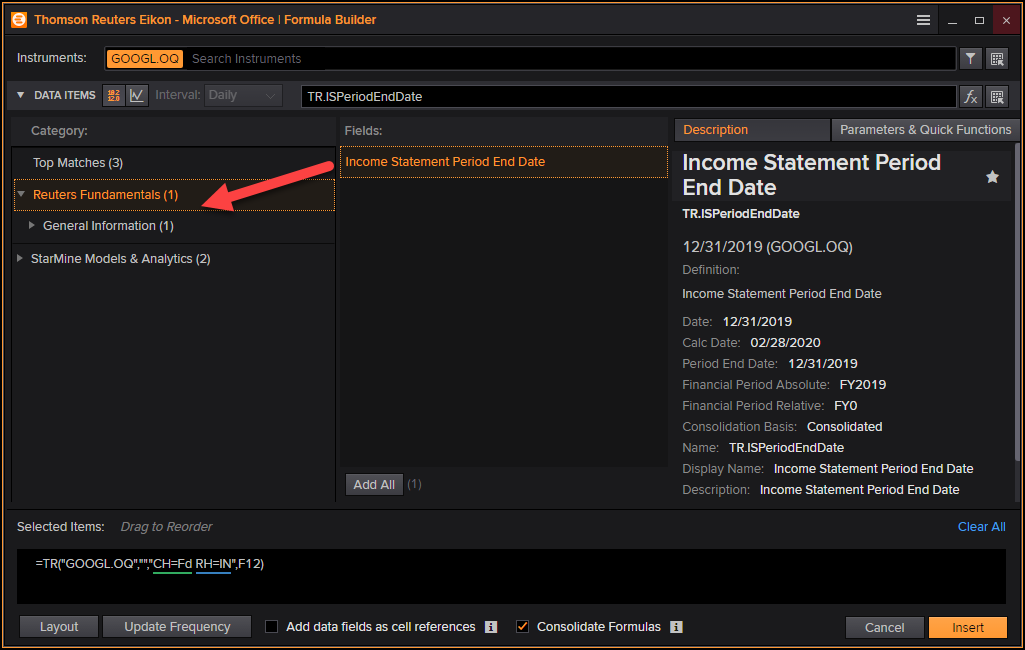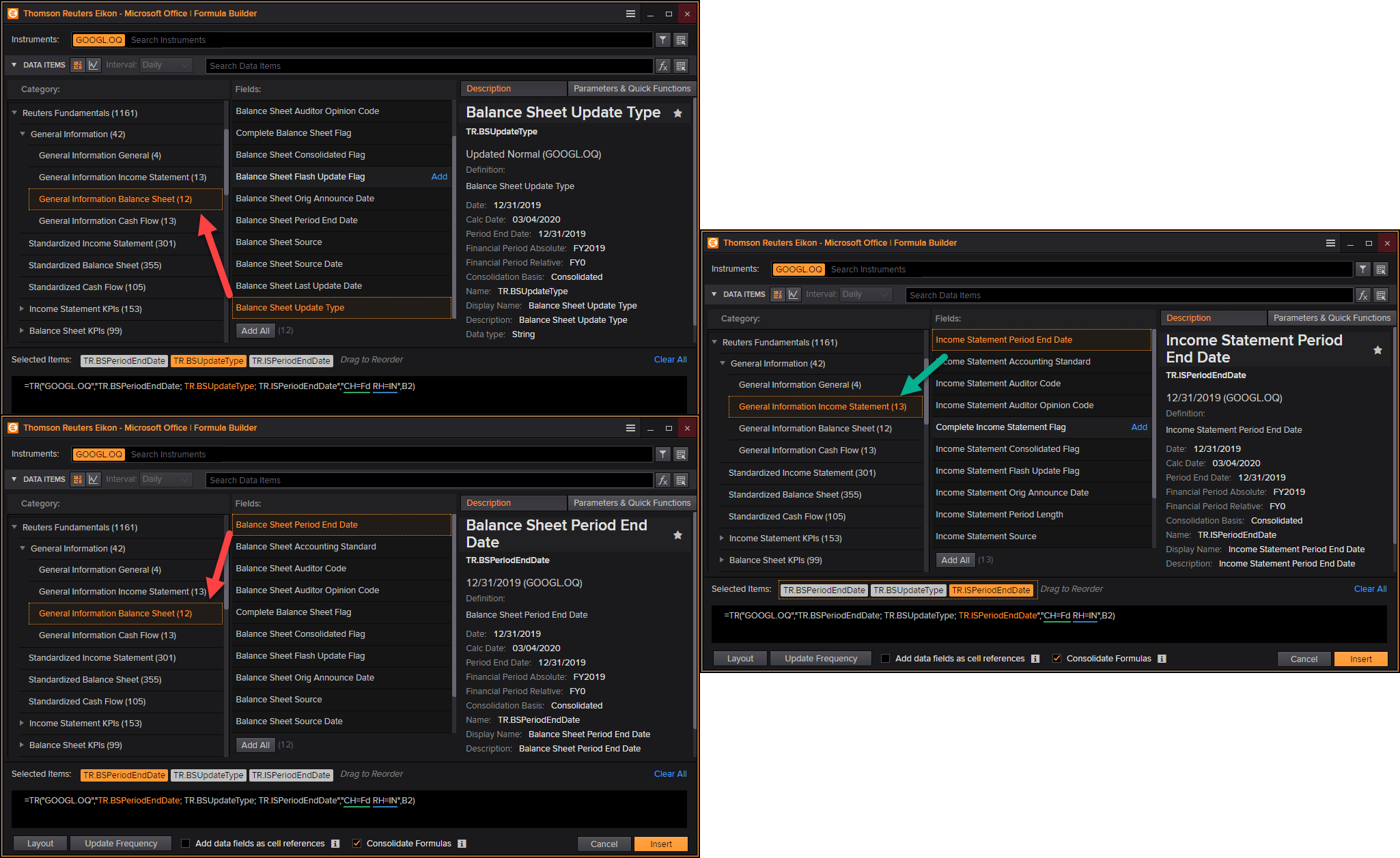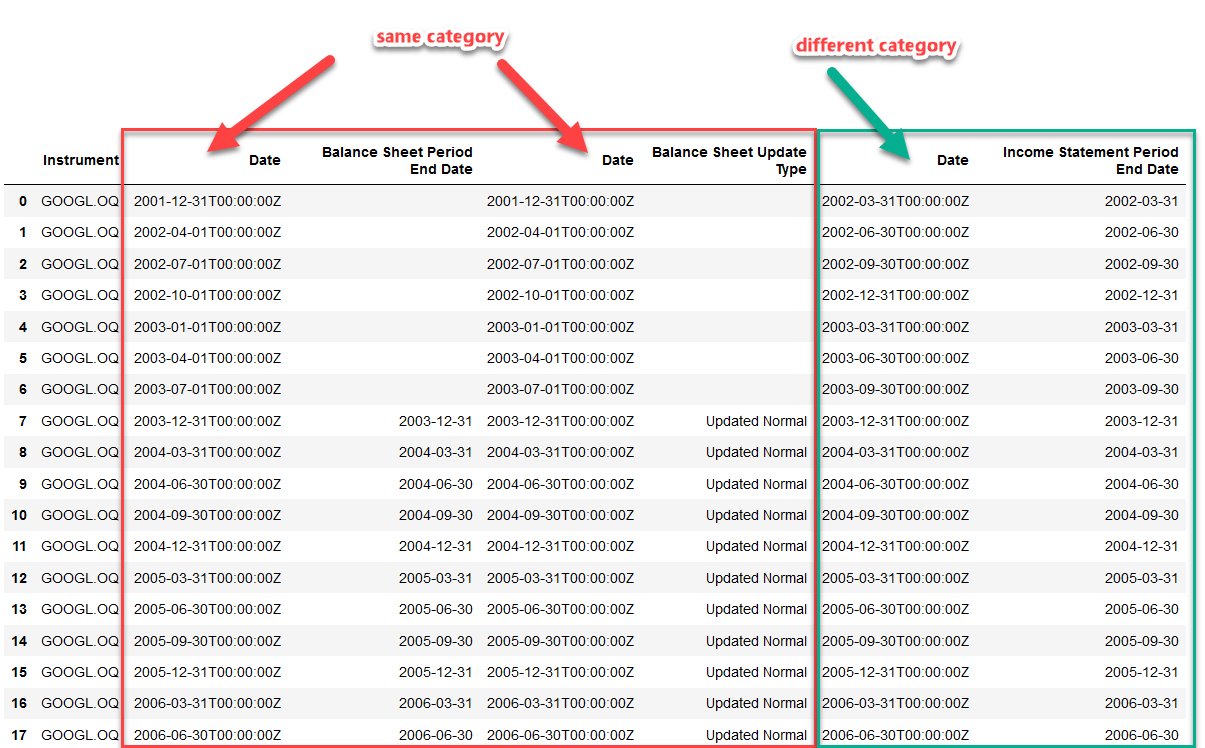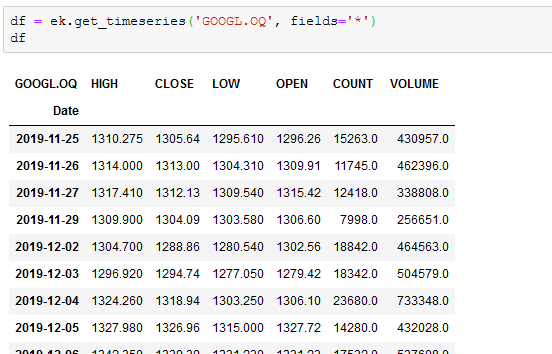Hello,
I am requesting the following data in Excel:
=TR("GOOGL.OQ";"TR.BSPeriodEndDate.fperiod;TR.BSPeriodEndDate;TR.ISPeriodEndDate;TR.EPSActValue;TR.EPSActValue.date";"Period=FQ0 Frq=FQ SDate=1982-01-01 EDate=2019-12-31 CH=Fd RH=IN";B2)
And I use the following code to do the exact same via API:
data,err = ek.get_data("GOOGL.OQ", ['TR.BSPeriodEndDate.fperiod', 'TR.BSPeriodEndDate', 'TR.ISPeriodEndDate', 'TR.EPSActValue', 'TR.EPSActValue.date'], {'SDate':'1982-01-01', 'EDate':'2019-12-31', 'Period' : 'FQ0', 'Frq' : 'FQ'})
The trouble I have can be seen in this picture:

There is a missmatch in "time" as the date of EPS-actual (last column), which is the earnings announcement date, does not possibly fit the fiscal quarter (third column) in the same row.
I know how to fix this in Excel:
... CH=Fd RH=IN;fperiod"...
However, I do not know how to fix it in terms of the API. As far as I am aware CH and RH parameters are disregarded in the eikon python package.
Still I need to find a way to match the data in the API correctly.
Can you help?
Additionally: Do I get it right that ek.get_timeseries is limited to HIGH, CLOSE, LOW, OPEN and VOLUME?


